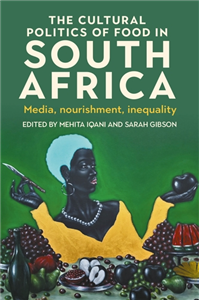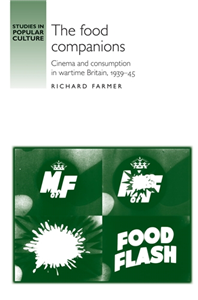Your Search Results
-
Promoted Content
-
Promoted Content2023
Food Composition Table for the Practice
The small Souci/Fachmann/Kraut
by Founded by S.W. Souci, W. Fachmann and H. Kraut. Revised by Dr. Petra Steinhaus. Edited by the Leibniz Institute of Food Systems Biology at the Technical University of Munich.
■ How many omega-3 fatty acids does salmon contain? ■ Which dairy product contains the most calcium? ■ How iron-rich is spinach, really? Whether calories, vitamins or amino acids – whether in field beans, bananas, eggs, chicken, parmesan cheese or onion – it is all here. The compact edition of the time-tested „large SFK [Souci/Fachmann/Kraut]“ offers tested data on over 70 ingredients in more than 360 foods, systematically structured according to food groups. This edition with thousands of values has been completely revised and updated by the Leibniz Institute of Food Systems Biology at the Technical University of Munich. Extra: 32 summary tables cover more than 300 other, less common foods and allow for targeted, clear comparisons. 16 orientation tables provide information about foods with particularly high or low amounts of ingredients. Nutritional values, energy content, main components and ingredients displayed in uniform systematics and a practical format – just look it up!
-
 Trusted Partner
Business, Economics & LawOctober 2004
Trusted Partner
Business, Economics & LawOctober 2004Qualities of food
by Mark Harvey, Andrew McMeekin, Alan Warde
In this book, the complexity and the significance of the foods we eat are analysed from a variety of perspectives, by sociologists, economists, geographers and anthropologists. Chapters address a number of intriguing questions: how do people make judgments about taste? How do such judgments come to be shared by groups of people?; what social and organisational processes result in foods being certified as of decent or proper quality? How has dissatisfaction with the food system been expressed? What alternatives are thought to be possible? The multi-disciplinary analysis of this book explores many different answers to such questions. The first part of the book focuses on theoretical and conceptual issues, the second part considers processes of formal and informal regulation, while the third part examines social and political responses to industrialised food production and mass consumption. Qualities of food will be of interest to researchers and students in all the social science disciplines that are concerned with food, whether marketing, sociology, cultural studies, anthropology, human nutrition or economics.
-
 Trusted Partner
October 2020
Trusted Partner
October 2020Simple Food!
Anti the Food Frenzy in Our Minds
by Thomas A. Vilgis
This book follows a unique path in the ubiquitous food debate: it leads us on the trail of the origins of our food culture, from the Neolithic period to the present day. Thomas A. Vilgis has compiled a guide that combines scientific with cultural or sociological aspects. How did Stone Age man poach food? Which cereal varieties were cultivated first? What is the mysterious umami flavour all about? The cultural historical excursion gets interactive with plenty of recipes for those curious to test Kimchi with birch leaves or red cabbage in their dessert.
-
 Trusted Partner
Humanities & Social SciencesMarch 2026
Trusted Partner
Humanities & Social SciencesMarch 2026The cultural politics of food in South Africa
Media, nourishment, inequality
by Mehita Iqani, Sarah Gibson
Food is both a material system of nourishment, necessary for human survival, and a communicative system that signifies multiple meanings across human cultures. This book explores the cultural politics of food in the South African context, bringing together a range of disciplinary perspectives on the links between media, nourishment, and inequality. The chapters all highlight the multiplicity of meanings that food has in South African society. These include historical perspectives on the impact of colonialism, migration and apartheid had on food and foodways in South Africa; sociological interventions on food and society; aesthetic practices in relation to food; and mediated food cultures in South Africa. Taken together, the book critically explores the multiple ways in which food is never just food, and always linked to complex and shifting modalities of meaning and knowledge in the South African context.
-
 Trusted Partner
2020
Trusted Partner
2020Interactions between Medicines and Food
by Prof. Dr. Martin Smollich and Dr. Julia Podlogar
Interactions between medicines and foodstuffs may be just as clinically relevant as interactions between individual drugs. A single meal contains several hundred potentially interacting compounds that, in an individual patient, may be the deciding factor as to whether a treatment is successful or not. The resulting, sometimes serious risks are not known to most patients – nor to many physicians and pharmacists. This practical handbook enables anyone interested in applied pharmacotherapy to keep abreast of the complex field of drug interactions. The authors – proven experts in clinical pharmacology and pharmaconutrition – describe the most important interactions and give concrete recommendations for action. Tables and overviews permit fast access to potentially problematic combinations. This completely updated edition now also includes information about fruit juices and curcumin as well as a new chapter on food interactions in oncology.
-
 Trusted Partner
Business, Economics & LawJuly 2018
Trusted Partner
Business, Economics & LawJuly 2018Qualities of food
by Mark Harvey, Stan Metcalfe, Andrew McMeekin, Mark Harvey, Alan Warde
In this book, the complexity and the significance of the foods we eat are analysed from a variety of perspectives, by sociologists, economists, geographers and anthropologists. Chapters address a number of intriguing questions: how do people make judgments about taste? How do such judgments come to be shared by groups of people?; what social and organisational processes result in foods being certified as of decent or proper quality? How has dissatisfaction with the food system been expressed? What alternatives are thought to be possible? The multi-disciplinary analysis of this book explores many different answers to such questions. The first part of the book focuses on theoretical and conceptual issues, the second part considers processes of formal and informal regulation, while the third part examines social and political responses to industrialised food production and mass consumption. Qualities of food will be of interest to researchers and students in all the social science disciplines that are concerned with food, whether marketing, sociology, cultural studies, anthropology, human nutrition or economics.
-
 Trusted Partner
Humanities & Social SciencesJuly 2014
Trusted Partner
Humanities & Social SciencesJuly 2014Reforming food in post-Famine Ireland
Medicine, science and improvement, 1845–1922
by Ian Miller
Reforming food in post-famine Ireland: Medicine, science and improvement, 1845-1922 is the first dedicated study of how and why Irish eating habits dramatically transformed between the famine and independence. It also investigates the simultaneous reshaping of Irish food production after the famine. Adopting an interdisciplinary approach, the book draws from the diverse methodological disciplines of medical history, history of science, cultural studies, Irish studies, gender studies and food studies. Making use of an impressive range of sources, it maps the pivotal role of food in the shaping of Irish society onto a political and social backdrop of famine, Land Wars, political turbulence, the First World War and the struggle for independence. It will be of interest to historians of medicine and science as well as historians of modern Irish social, economic, political and cultural history. ;
-
 Trusted Partner
June 2022
Trusted Partner
June 2022Finde den Fehler. Für Kindergartenkinder ab 4
Rätselspaß mit Fehler-Such-Bildern
by Judith Ganter, Judith Ganter
40 Fehler-Such-Bilder für Kinder ab 4 Jahren: Finde die Unterschiede! Was ist denn hier passiert? Im Zirkus, beim Einkaufen oder in der Natur - überall haben sich kleine Fehler in die Bilder gemogelt. Aber wo sind sie versteckt? Auf geht’s zur Fehlersuche! Mit den beliebten Fehler-Such-Bildern ist riesengroßer Rätselspaß garantiert und nebenbei trainieren Kindergartenkinder spielerisch Wahrnehmung, Konzentration und logisches Denken. Sind die Fehler allzu gut versteckt, hilft ein Blick in die Lösungen auf der Rückseite.
-
 Trusted Partner
March 2020
Trusted Partner
March 2020No Place for Taste
Food Myths and the Rapid Change of Food Culture
by Manfred Kriener
This book is not a manual but provides an information kit so we can find our way intelligently and make decisions. Nutrition is a constant talking point, but often there is a lack of knowledge and judgement. Amidst this confusion of facts, Manfred Kriener clarifies the rapid change of our food culture. He covers the entire range from the vegan trend to insect food, from aquaculture to cultured meat. Kriener also focuses on the various obscure quality seals, chaotic labelling on the wine rack and our inconsistency as consumers. The new world of food in eleven chapters, spicy at times, but plenty of food for thought and to whet the appetite.
-
 Trusted Partner
Humanities & Social SciencesAugust 2011
Trusted Partner
Humanities & Social SciencesAugust 2011The Food Companions
Cinema and consumption in wartime Britain, 1939–45
by Richard Farmer, Jeffrey Richards
The introduction of rationing in January 1940 ensured that food became a central concern for the British people during the Second World War. The food companions investigates the cinema of this period and demonstrates the cultural impact that rationing and food control had on both government propaganda and commercial feature films. Combining archival research, detailed film analysis, and the extensive use of contemporary documents and resources, this book is the first to fully address the extensive propaganda work of the Ministry of Food both inside and outside the cinema. It also explores the tensions contained in images of communal dining, investigating the role that food played in Gainsborough's narratives of excess and identifying and analysing a cycle of black-market feature films. Lively and illuminating, The food companions will be welcomed by film scholars, historians, students, and anyone who has ever wondered about the important contribution that tea made during the war to shaping ideas of Britishness. ;
-
 Trusted Partner
October 2020
Trusted Partner
October 2020The Eco-Balance on the Plate
How What We Eat Can Protect the Climate
by Dr. Malte Rubach
How much CO₂ is emitted by one serving of spaghetti bolognese? About 1.5 kilograms! This example shows what the meat industry and food logistics mean for the eco-balance of our food. But is it enough to switch to meat-free and dairy-free alternatives or local specialities? Dr. Malte Rubach takes a closer look and reviews our food regime and its impact on our climate. We live in a society influenced by technology and the rising consumption of resources. Rubach argues for a sensible attitude to food and shows what we can still eat with a clear conscience.
-
 Trusted Partner
Humanities & Social SciencesApril 2009
Trusted Partner
Humanities & Social SciencesApril 2009Food, risk and politics
Scare, scandal and crisis - insights into the risk politics of food safety
by Ed Randall
This is a book about the risk politics of food safety. Food-related risks regularly grab the headlines in ways that threaten reasoned debate and obstruct sensible policy making. In this book, Ed Randall explains why this is the case. He goes on to make the case for a properly informed and fully open public debate about food safety issues. He argues that this is the true antidote to the politics of scare, scandal and crisis. The book skilfully weaves together the many different threads of food safety and risk politics and offers a particularly rewarding read for academics and students in the fields of politics and media studies. It will also appeal to scholars from other disciplines, particularly social psychology and the food sciences. The book is a lively and exceptionally readable account of food safety and risk politics that will engage policy makers and the general reader. It promises to help us all manage food safety issues more intelligently and successfully. ;
-
 Trusted Partner
February 2024
Trusted Partner
February 2024Why We Should Care if a Sack of RiceFalls Over in China
The food of the future
by Dr. Malte Rubach
It is time to counter the numerous utopias, myths and established narratives of the future of nutrition with a fact-based scenario. This book shows where the natural limits of what is currently technologically feasible lie and how the global diversity of food cultures will ensure the survival of humanity in the future. It exposes the great promises of meat substitutes from the laboratory as well as vegan renunciation scenarios, and shows a realistic path for the future of global nutrition along the lines of the United Nations’ 17 Sustainable Development Goals.
-
 Trusted Partner
September 2022
Trusted Partner
September 2022Gluttony
Blow-out
by Jürgen Dollase
One of Germany's best-known restaurant critics, Jürgen Dollase knowledgeably traces the ups and downs of our love of food. Following the historical-theological classification of the 'mortal sin' that is gluttony, he illuminates not only the physical and medical but also the so important psychological aspects of food. We learn just why his weight loss self-experiment was not successful in the long term as well as various enlightening facts regarding the fateful role of the discounters. This book is not an appeal for moderation, but a plea for moderate indulgence.
-
 Trusted Partner
Trusted Partner
-
 Trusted Partner
Trusted Partner
-
 Trusted Partner
Trusted Partner
-
 Trusted Partner
September 2018
Trusted Partner
September 2018Simplify your food
Denn die Rettung der Welt beginnt in der Küche
by Seethaler, Susanne
-
 Trusted Partner
January 2025
Trusted Partner
January 2025Mein dickes Übungsbuch für den Kindergarten
160 Rätsel und Übungen für Kinder ab 4 Jahren
by Helen Seeberg, Meike Teichmann
Extradicker Lernspielspaß mit 160 Übungen für Kinder ab 4 Jahren Mit extra Schwung durch den Kindergarten! In diesem Übungsbuch trainieren Kindergartenkinder wichtige Fähigkeiten, die sie auf die Vorschule und die 1. Klasse vorbereiten. Die lustigen Labyrinthe, Buchstabensalate und Ausmalbilder bereiten für Kinder ab 4 Jahren Freude am ersten Lernen. Abwechslungsreiche Lernspiele fördern dabei Feinmotorik, logisches Denken und Konzentration. Superdicker Übungsspaß – so wirst du zum Vorschulprofi! • Der Schwesternband zum Erfolgstitel „Mein dickes Übungsbuch für den Schulanfang“• Extradickes Format mit 160 Aufgaben• Trainiert Kernkompetenzen für Kindergartenkinder


























